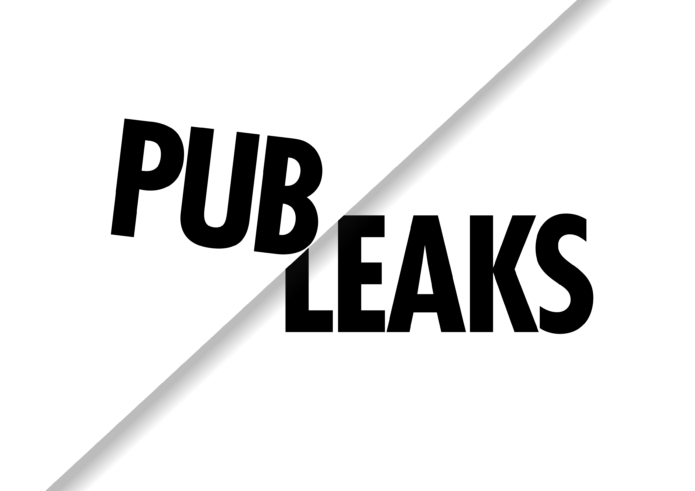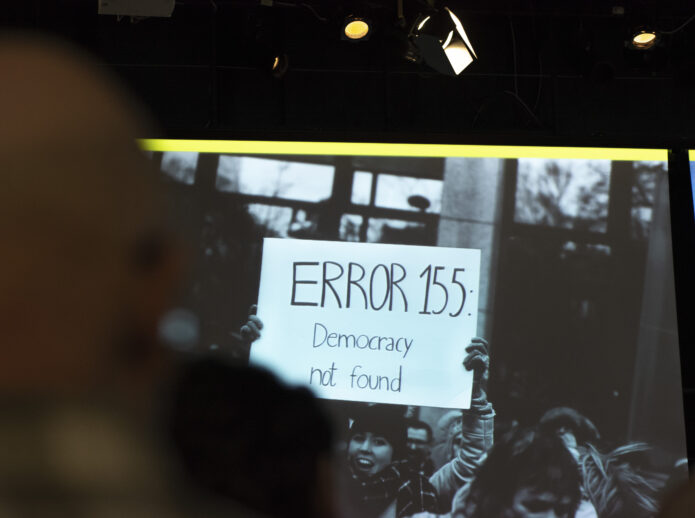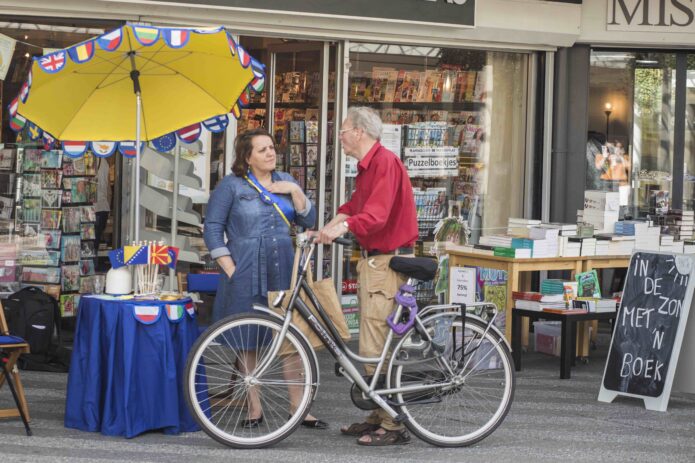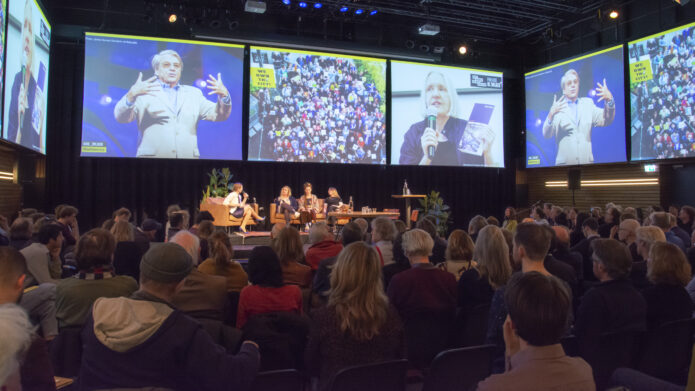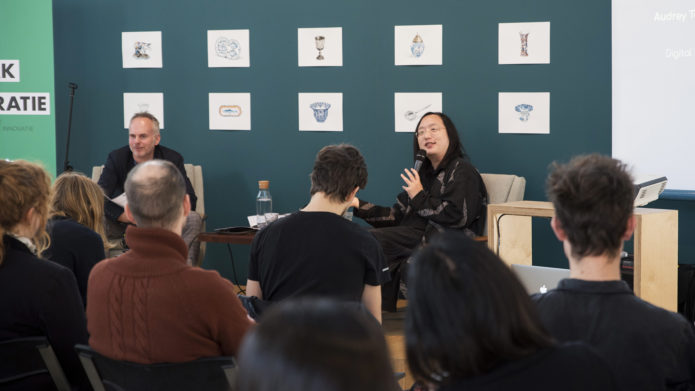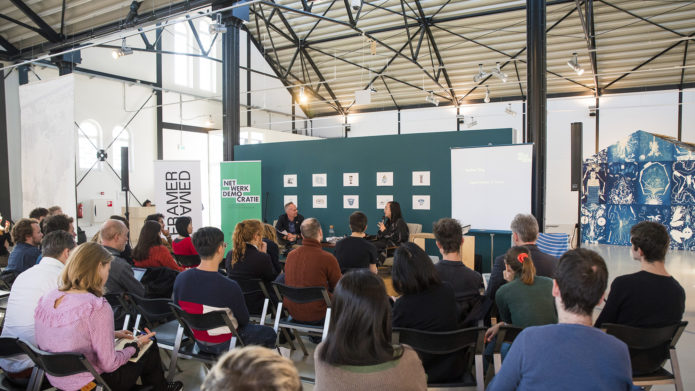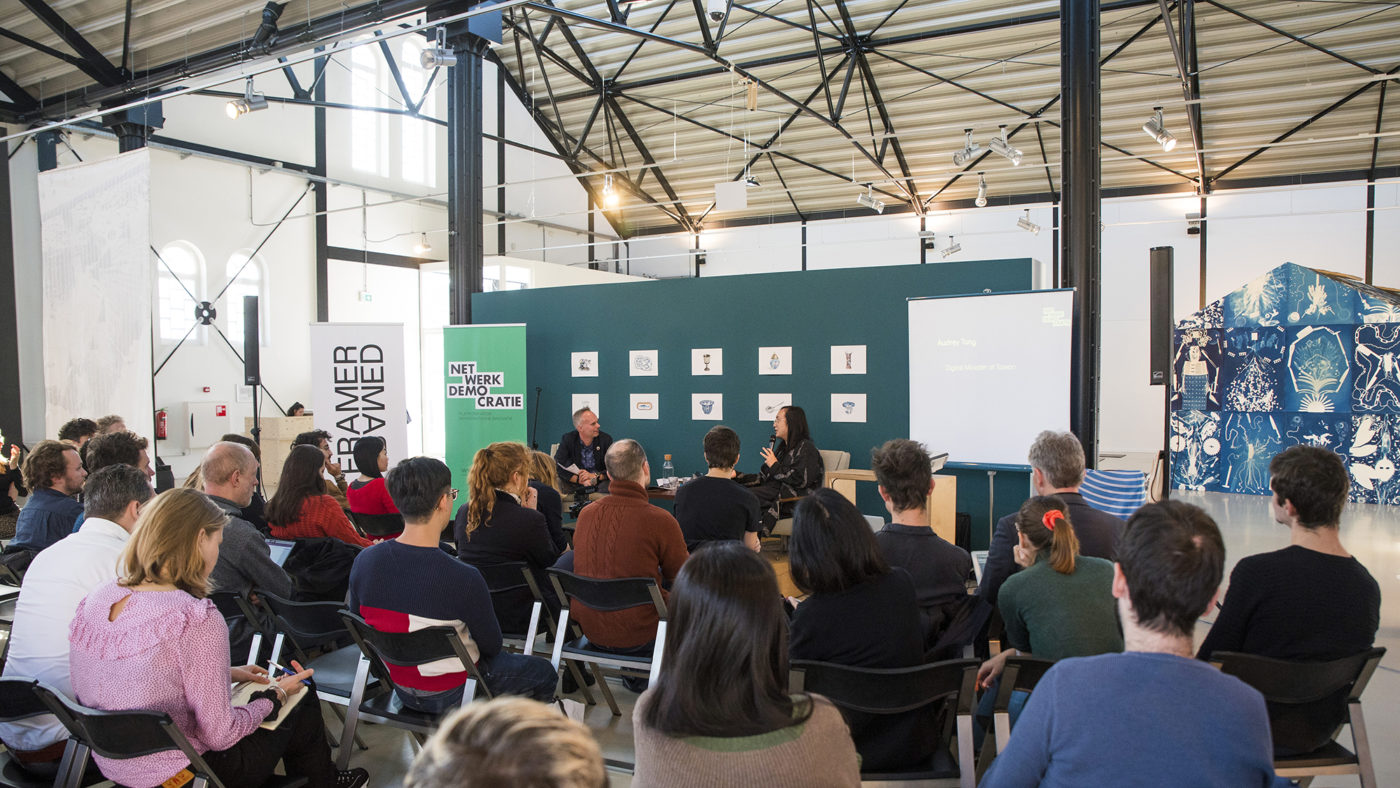 Conversation with Audrey Tang | Photo: © Betul Ellialtioglu, 2019
Conversation with Audrey Tang | Photo: © Betul Ellialtioglu, 2019 De erfenis van Netwerk Democratie bij Framer Framed
Text: Evie Evans
Authority an sich has been increasingly questioned in recent decades. We see this in the breadth of society, but also in the protest movements that emerged around 2010, opposing the democratic deficit of a ruling elite. Young people in particular took to the streets worldwide to demand more control. The 15M movement of the Indignados in Spain, Occupy Wall Street or the Arab Spring worked on alternative forms of participation, decision-making and organisation.
Inspired by these movements (2011-2021), Josien Pieterse and several others established an organisation that was dedicated to, on one hand, radical transparency and accountability of power structures, and on the other, alternative and deliberative forms of democratic decision-making; Network Democracy. This civil society foundation was inspired by democratic movements worldwide and was involved in shaping local citizens’ forums (following the G1000 in Belgium), Publeaks (to put the position of whistleblowers on the agenda and facilitate the safe leaking of information to the press), Voor Je Buurt (for crowdfunding neighbourhood projects) and introducing open source platforms for decision-making such as Consul (from Madrid) and Pol.is (Taiwan).
For example, Consul was an innovative practice developed by activists in Madrid in order to integrate aspects of deliberative and participatory democracy into the existing political structure. The digital platform was created to give citizens more say in the traditional two-party system and to make use of people’s collective intelligence to create a more inclusive and transparent city. This technique decentralised policy proposals and decision-making which, in turn, addressed the growing demand for responsiveness.
The organisation was also borne from the observation that our democracy is running up against the limitations of the existing representative system and that there is an urgent need to critically examine it and add alternative forms of participation and governance. What comes to mind when you read the words ‘digital democracy’? How does technology affect governance and social responsibility? Most importantly, how can we as citizens ensure that new technology serves a public interest?
With this focus Network Democracy organised lectures, workshops and initiated long-term research projects into how technological developments can better serve the public interest. At a time when technology continues to have an ever-increasing impact on privacy, government and all levels of society, they strived to ensure people had a greater say in how digitality affects their lives.
Their programme, with various partners, included a series on neighbourhood rights and Right to Challenge, Citizen Summit Amsterdam, where 250 Amsterdammers gathered to discuss the future of the city, the initiative for the crowdsourcing and crowdfunding platform for neighbourhood initiatives Voorjebuurt.nl, whistleblowing platform PubLeaks, and Consul Democracy Foundation, international platform for digital deliberative democracy based on agenda-setting, decision-making and participatory budgeting by citizens.
Pieterse retired as director of Network Democracy after 10 successful years, passing the torch onto former programmers Anne de Zeeuw and Tessel Renzenbrink, though she remained on the board. In 2023, their work officially ceased, and the board and management agreed to close Network Democracy but absorb its line of programming into Framer Framed.
In fact, themes of digital democracy, legislative transparency and the politics of data have always been important to the work at Framer Framed. For example, previously Framer Framed and Network Democracy co-curated programme series such as Broadcasting from Babylon and Up/Root Democracy together.
Broadcasting from Babylon (2019) was a series of gatherings developed with Anne de Zeeuw, Amal Alhaag and Maria Guggenbichler which explored how citizenship informs cultural production, and how different forms of social engagement and place-making are developed by reclaiming and rewriting democracy through self-representation. The series was inspired by intersectional feminist, queer, and anti-colonial embodied, listening and sounding practices, broadcast from Babylon, Fort EU. Across six events organisers and participants engaged with the question: what can cultural practitioners learn from social movements, hackers, squatters and open-source activists?
The themes of each gathering ranged from ‘co-creation and the commons’ in the city to merging art and activism into disobedient art with Fossil Free Culture NL. Another session had hacker Melanie Rieback set the definition of a business model upside down in order to use them as a tool for activism, for art, and for self-expression. Educator Shailoh Philips and artist Yara Said shared their experience in their autonomous artist-run space. Focusing on communing as strategy, the seminar Creative Coding and Plotting as Playful Tactics in the Datafied Society explored the relationship between humans, coding and datasets. Tying in with Framer Framed’s secondary location of Werkplaats Molenwijk, artist and urbanist Adeola Enigbokan gave a talk on the role of public space in informing socially engaged art practices.
The following year saw the kick-off of Up/Root Democracy (2020), an online public programme focused on extractive systems undermining human/non-human rights. The first reading room entitled Resisting Data Extraction was led by data Justice researcher Fieke Jansen and privacy activist Susana Sanz. Participants discussed surveillance capitalism in an increasingly digitised post-pandemic world. By extension, the following session Algorithms on Trial exposed the darker uses of algorithms, calling for new ways of hiding, un-tracking, resisting, and re-thinking legal systems to account for data and AI. The final A Seat for Nature was a double programme with a panel discussion and reading room on environmental justice. The event featured research collectives and political foundations dedicated to restoring equity between non-human organisms, anthropocentric systems, and natural landscapes in the lead up to the Framer Framed exhibition, the Court for Intergenerational Climate Crimes (CICC) by writer and lawyer Radha D’Souza and visual artist Jonas Staal.
However, Network Democracy was working extensively and independently on topics which corresponded with Framer Framed’s ethics for years before. Between 2016 and 2020, Network Democracy together with European Cultural Foundation (ECF) and Pakhuis de Zwijger organised a series of evenings 40 public programs about current changes in European politics and democracy. The series included panels on topics of urban planning, cultural and community initiatives, protection and preservation of public space and participatory governance. It was a great success, culminating in a publication of the same name, recapping the most significant moments and laying out steps to continue affecting change in information and technology centred societies.
The programme was in fact ten years in the making for Pieterse. Around 2006, she was involved in the series Cross-Thinking Sustainability at Felix Meritis. Initiated by John Grin and Anna Wieczorek of the System Innovations and Transitions Knowledge Network (KSI), the series was underpinned by a framework for thinking in which, on the one hand, had a critical and historicising analysis of existing structures and methods, whilst also considering, possible solutions and strategies that traverse or question these structures. Pieterse went to Grin to discuss the possibility of a foundation based on transitional thinking of global developments, a foundation that would later become Network Democracy. They had meetings with other collaborators with a uniquely interdisciplinary approach, connecting economics, urban development, spatial planning and energy and sustainability concerns. Pieterse sought out scenarios of renewal in the (digital) commons and (digital) deliberative democracy. Precisely therein lay the key to renewal: by taking small and larger innovative, activist or marginalised initiatives seriously and looking toward them as directions for solutions. New Democracy brought alternatives together, allowing them to be seen not only as an inspiring movement, but as a serious alternative.
The founding directors of Framer Framed, Josien Pieterse & Cas Bool, were influenced by the anders globaliseringsbeweging in the 1990s, a movement of movements that opposed the neoliberal way of globalisation – of which Dutch colonial history is intimately entangled with. Grassroots initiatives worldwide were able to criticise the increasing power of international large corporations, using the new possibilities of the Internet to collaborate and come together. With this in mind, Framer Framed saw the potential of social media as a force for good for activism but were also aware of the monopolistic positions of media companies and their ability manipulate or drive people apart. In order to tackle this debate Network Democracy and Framer Framed invited famous activist, hacker and first Minister of Digital Affairs of Taiwan Audrey Tang in 2019. She galvanised a conversation on the civic-tech movement, radical digital transparency, and online citizen participation in 2019. The lecture and discussion was illuminating and inspiring for the audience. She emphasised that technology can be a tool for commonality rather than a divisive force, as is currently the case, determined that digital technology will once again become a force for good when people are heard and understood, rather than simply driving anger and resentment.
In its the early days, social media offered opportunities to reach and engage their own audiences at low cost. It was no longer necessary to work in a large institution so you could make costly trips and stay informed. Anyone with Internet access could be informed (from home) about the latest international developments or maintain contacts with initiatives worldwide. Being well-informed was no longer reserved for a small group of key figures or star curators. A new wave of democratisation made its appearance and distances changed. For Network Democracy, too, it made it clear that while we could not easily do without social media, we had to organise our digital systems as open-source and self-managed as possible and make our contribution to developing alternatives. Over ten years on since the start of Network Democracy, the risks of fake news, interference in elections and the concentration of power in a handful of tech companies has become a frightening reality. An interdisciplinary approach and a transition in thinking is more urgent than ever.
Many similar points of discussions were re-ignited during InnovatieLabs and the Hybrid Publishing Tool & Digital Archive projects. Together with Framer Framed, Archival Consciousness created Biblio-Graph, an application for cultural organisations, libraries and archives. Intended to be publicly available to use for other organisations to use in the future, the open-source program is an interactive layer that can visualise collections.
Biblio-Graph’s browser tool where editors and designers can work in the same file to create hybrid books that are immediately available online, as a PDF or prepared for offset printing. Framer Framed is, foundationally, a digital-born organisation. Having traversed years of social media platforms and building an audience base through the website and newsletter, Framer Framed must question our own digitality and our now data-driven society. Websites often disappear and years of accumulated data can be lost to both users and casual visitors.
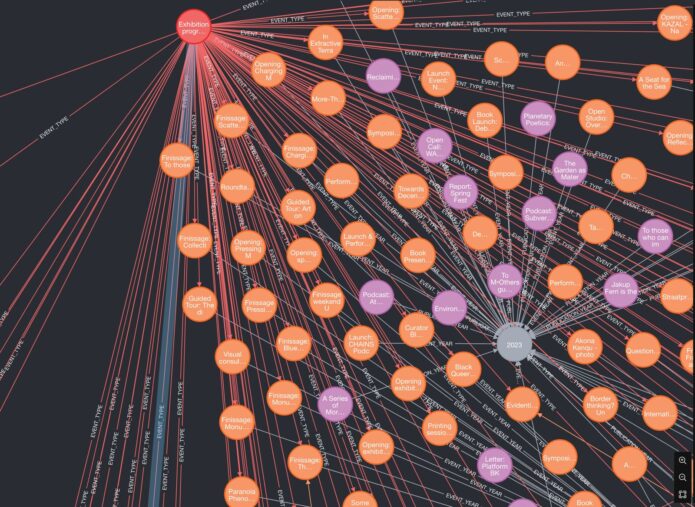
Schematische weergave van de netwerkrelaties in het archief van Framer Framed. Afbeelding: Archival Consiousness
Biblio-Graph Publish rethinks the cycle of publishing and archiving, making the process cyclical and using technology to create and add a new digital dimension. The digital archive of Biblio-Graph uses an online platform to make the dissemination of knowledge – and Framer Framed’s collection of practices – easier. Both projects echo Network Democracy by raising questions of digital access.
What does it mean to be open to the public on a digital level? How can we overcome a dependency on commercial platforms and interfaces? Why is that important? What can cultural organisations do (within a network of other organisations) to preserve their collections in a way that remains equitable? Archives are often only available to the privileged few; going online provides access for a new audience. An upcoming podcast series with artists and researchers Mariana Lanari and Annet Dekker will continue this discussion in 2025.
Although Network Democracy no longer initiates independent projects, its mission continues in the ethos of Framer Framed, particularly the platforms’ joint inspiration of ‘commoning’. Here ‘commons’ refers to both resources and non-material needs, physical and metaphorical spaces that affect a community. The sense of belonging in a community comes from the idea of shared ownership of these various elements. This idea was further invigorated by documenta fifteen (2022), curated collectively by ruangrupa. The Indonesian art collective does not focus on the art public and the art market, but surrounds itself with residents and communities. They bring together an international network of local, community-based organisations, from the arts and other cultural contexts which Framer Framed emulates across multiple disciplines.
The legacy of Network Democracy lives on through the two fellowships and within the mission of Framer Framed
Part of the common program of Network Democracy and Framer Framed is to explore technological opportunities such as Non Fungible Tokens (NFTs), such as Energy Tokens, and Decentralized Autonomous Organisations (DAOs). These methods can give users more control over digital identities and contributions, reshaping the organisation of online communities. Although still at an early stage, these technologies are valuable for thinking about alternatives for assigning value and establishing democratic structures. A multi-year study with design theorist and researcher Yin Aiwen showed that these tools have potential within an organisation like Framer Framed. For example, they can strengthen internal democracy within the organisation because they give everyone a voice based on involvement: artists, volunteers, visitors and employees. They connect online and offline communities.
Yin has built upon her previous collaborations with Framer Framed to become a research fellow of Digital Commons. She will explore the intersection of art and commons through the lens of digitally assisted governance. In this way, Framer Framed aims to bridge political sciences with contemporary artistic practices of political engagement by integrating themes of deliberative ‘bottom up’ democracy, social movements organisation and digitalisation.
Joint researchers Winnie Herbstein and researcher René Boer have also been invited to critically examine the role of conflict in contemporary society through the research initiative, Contemporary Conflict. The project stems from several conversations and activities organised through the Social Practice Workshop at the Rijksakademie, in collaboration with Framer Framed. Just as Network Democracy identified risks to democracy as starting points for conversation and activism, Contemporary Conflict considers conflict as a potential for transformative change rather than a state requiring a resolution. In their own words: “Contemporary Conflict recognises that this process is vital and necessary in the struggle to develop collective work across and beyond sanitised categories of ‘art’ and ‘activism’, and to further politicise and solidify the ‘political turn’ in the Arts.”
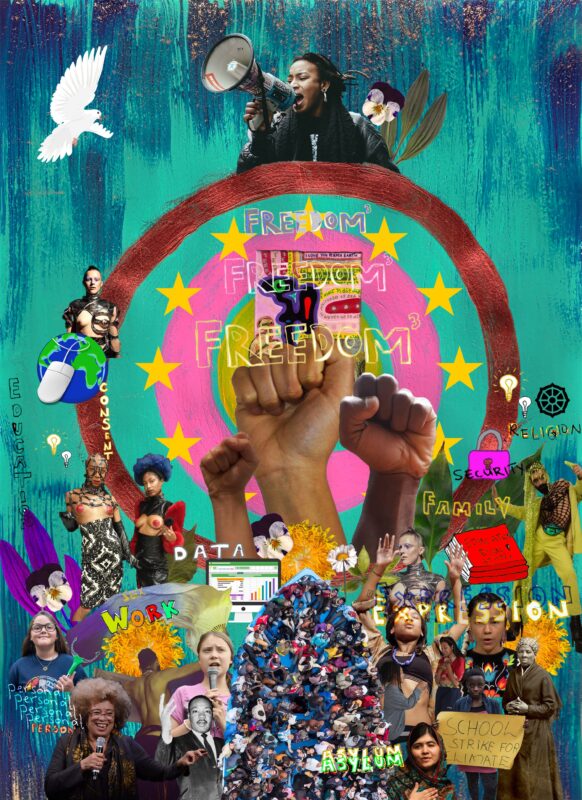
‘Freedom’ (2020) by Mercikubik for Artworks on the EU Charter of Fundamental Rights. Courtesy of Network Democracy
For more programmes, see the category: Digital Commons & Democracy.
- Digital Democracy Guide
- Publicatie: Handreiking Digitale Democratie
- Publicatie: New Democracy
Bijlages
Democratie & Digitale Autonomie / Burgerschap / Het levende archief / Politiek en technologie / Social Practice /
Agenda
Up/Root Democracy 1: Resisting Data Extraction
Online Reading Room + Workshop
In gesprek met Audrey Tang: Digital Minister of Taiwan
Over digitale democratie, radicale transparantie en online burgerparticipatie
Educatieprogramma: Broadcasting from Babylon, door Amal Alhaag, Maria Guggenbichler en Josien Pieterse
Over intersectioneel feministische, queer, en anti-koloniale belichaamde, luister-, en klankmethoden
Netwerk
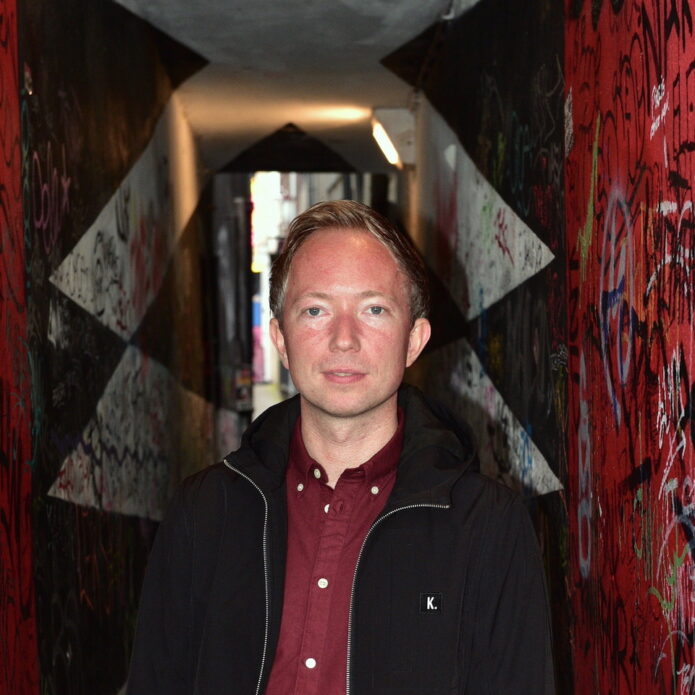
René Boer
Curator, Critic
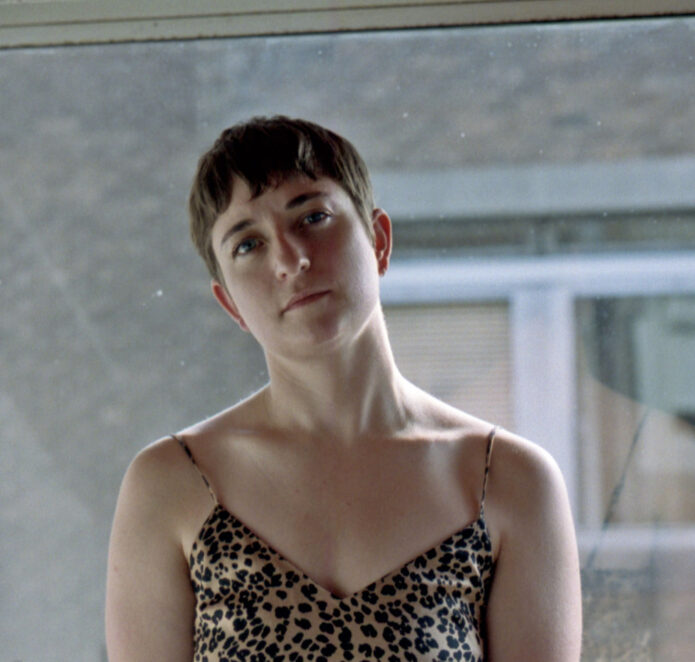
Winnie Herbstein
Kunstenaar
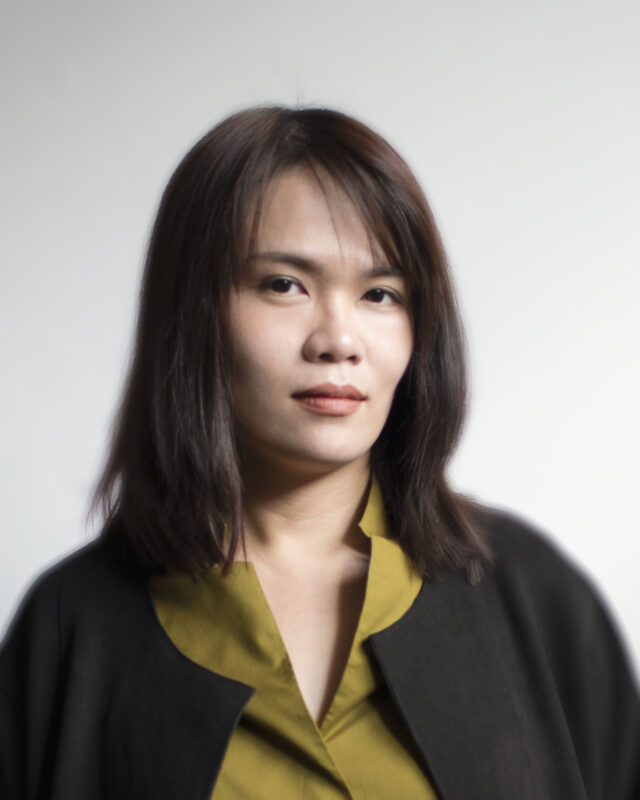
Yin Aiwen
Ontwerper, kunstenaar en theoreticus
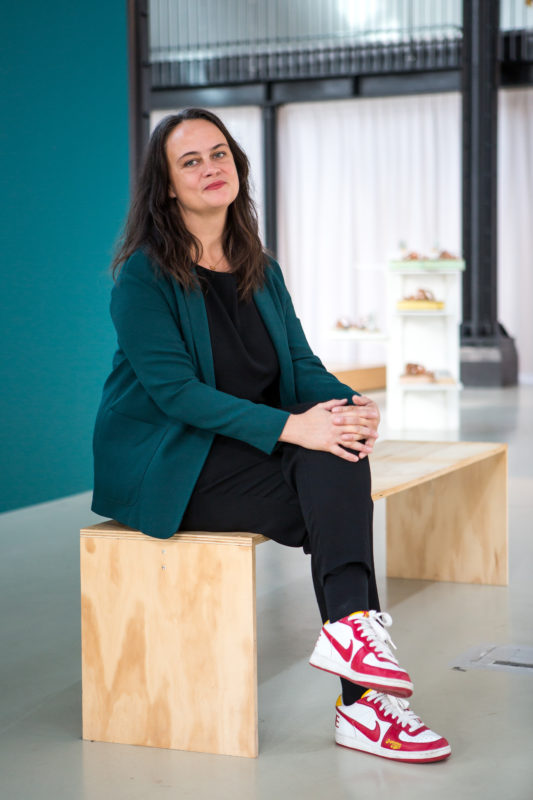
Josien Pieterse
Directeur Framer Framed
Magazine
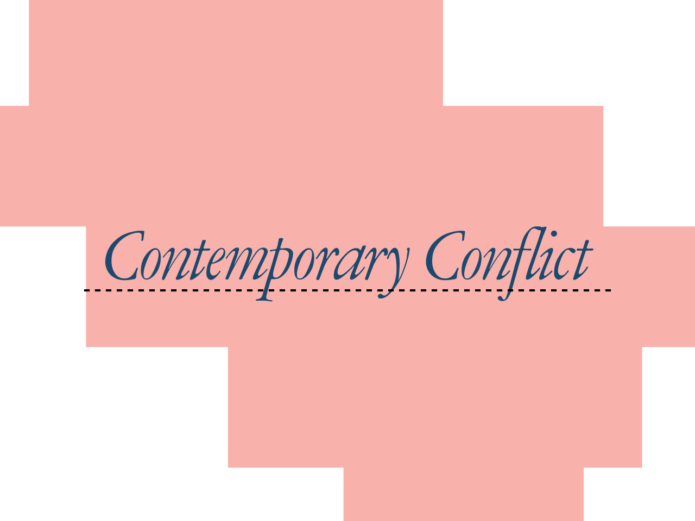
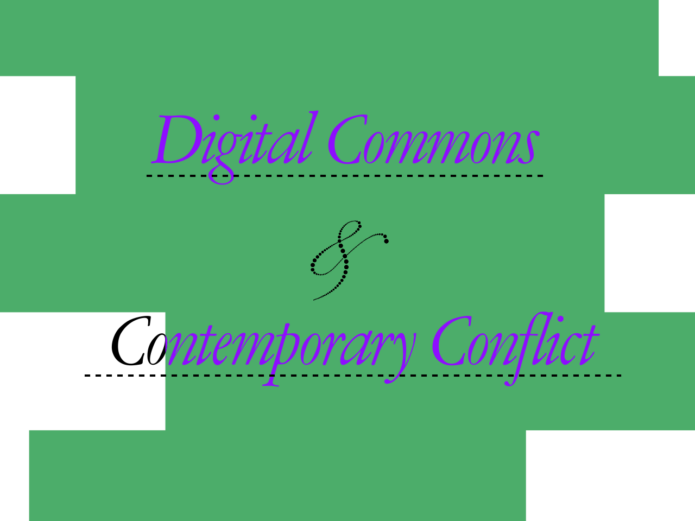
Framer Framed kondigt twee fellowships aan over de theorie en praktijk van commoning
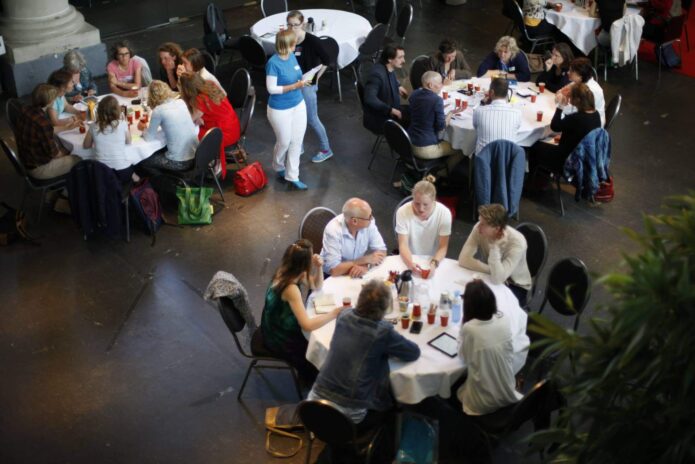
Burgertop Amsterdam
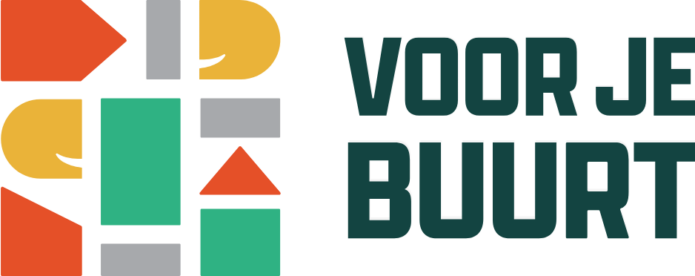
Voor Je Buurt – Crowdfunding voor je buurt, dorp of stad
